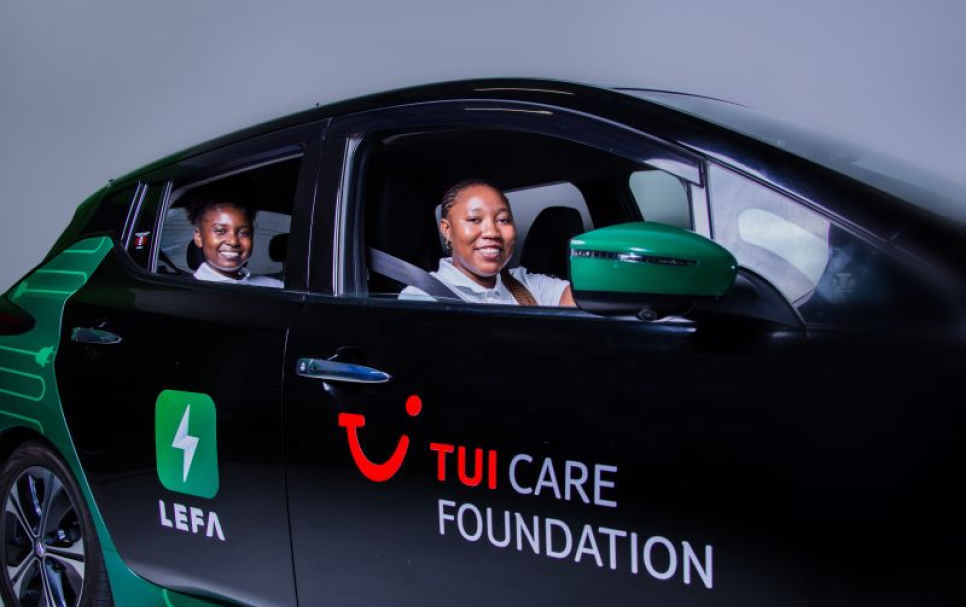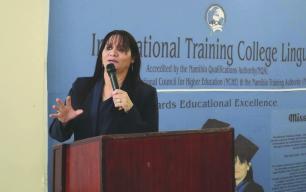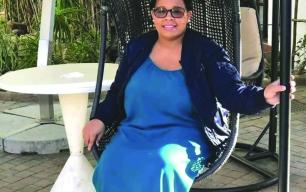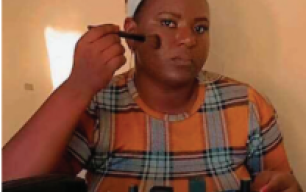NamTshuwe Digital’s Vision in Rewiring Tech for the People

LEFA Namibia continues to champion women’s empowerment through entrepreneurship and job creation by prioritizing employment opportunities for women in the Khomas Region. In a bold move last year, the company launched a fleet of 12 electric vehicles (EVs) all driven by women.
Marketing Manager Iyaloo Magongo explained that the decision to introduce electric vehicles reflects LEFA’s deep commitment to sustainability, innovation, and reducing carbon emissions in Namibia’s transport sector. The company, in partnership with the TUI Care Foundation, piloted this eco-conscious initiative to modernize urban mobility in Windhoek while addressing environmental concerns.
Acknowledging the male dominance in the transport industry, LEFA made it a priority to hire women. “LEFA recognized that the transport industry in Namibia, like many others, is male-dominated,” said Magongo. “Prioritizing female drivers was a deliberate move to break gender barriers, empower women economically, and provide them with dignified, formal employment opportunities.” She added that these drivers have become ambassadors of change, proving that women can excel in roles traditionally reserved for men.
These female drivers receive comprehensive training through the Electrify Mobility Programme, which goes far beyond basic driving. “They are trained in first aid, defensive driving, and Windhoek city tours,” Magongo noted.
Initially, there were concerns about how the public would receive EVs and female drivers. However, Magongo said the response has been “overwhelmingly positive, empowering, and courageous.” Passengers have praised the drivers for their professionalism, friendliness, and knowledge. “Many see them as role models, challenging outdated perceptions of gender roles in transport,” she said. The EVs, known for being modern, clean, and quiet, along with their female drivers, have become a distinctive feature in Windhoek’s urban landscape.
Looking ahead, LEFA plans to scale up the Electrify Mobility Programme over the next five years by expanding its electric fleet while keeping women at the core of its growth strategy. “The goal is to create a new generation of women transport entrepreneurs, fleet owners, and trainers who lead by example,” Magongo said. “We envision a self-sustaining model where empowered women empower others, transforming the industry and setting new standards in inclusive, sustainable mobility.”
Among the pioneers is Evelina Akweenda, one of the first women to drive for LEFA in Namibia. “I’ve always loved being behind the wheel,” she said. “I believe transportation is more than just driving, it’s about service, safety, and independence.” Akweenda joined LEFA to challenge herself and demonstrate that women belong in every space, even those traditionally dominated by men.
For Akweenda, confidence means trusting herself even when others don’t. “It’s about walking into any space knowing your worth and refusing to shrink to make others comfortable,” she said. Grounded by her values and supported by friends and family, she remains driven by purpose.
Despite mixed public reactions to female drivers in the ride-hailing industry, Akweenda continues to make her mark. “Sometimes clients are surprised or doubtful. Some ask if I’m really the driver,” she said. “But I’ve also received lots of encouragement, especially from women who say they feel safer and more empowered seeing me in this role.”
Breaking stereotypes remains one of her biggest challenges. “Some assume women can’t handle long hours, navigation, or even customer interactions,” she said. Road safety is another concern. “Being a woman on the road comes with risks, but every ride proves I can do the job just as well if not better.”
One unforgettable moment for Akweenda was when a young girl entered her car with her mother and whispered, “I didn’t know women could be drivers too.” “That reminded me that representation matters. Just by doing my job, I’m helping shift mindsets and inspire the next generation,” she said.
With calm professionalism, Akweenda has learned to maintain boundaries when dealing with difficult passengers. “I stay polite but firm and always prioritize my safety. If a situation feels unsafe, I report it and take necessary steps,” she said.
As LEFA continues to grow, Akweenda encourages other young women to pursue their dreams fearlessly. “Don’t wait for permission. Be bold, be curious, and be ready to work hard. Your courage might just open the door for someone else.”
She hopes to keep growing professionally and help mentor more women in the future. “I’d love to see more women in leadership roles in transportation. One day, I hope to mentor young women who want to enter male-dominated fields,” she said.
- 39 views










Comments